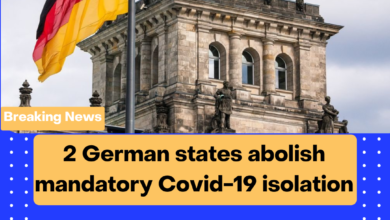Berlin: The Climate Neutrality Vote Falls Short
Table of Contents
ToggleBerlin: The Climate Neutrality Vote Falls Short
The referendum vote for making the German capital climate neutral 15 years earlier than planned falls short of yeses. Not enough voters supported the proposal to make Berlin climate neutral by 2030.
-
Top 5 Job sectors to look out for in Germany in 2025November 20, 2024
-
HTA App Job Tracking TutorialApril 25, 2025
The vote was held on Sunday, 26th March. The vote was divided in nearly half-and-half polarity with the supporters having a minute majority totaling 50.9%. But the overall turnout was less than even 50% and the motion is now not to become a law.
In terms of population numbers, around 442,000 and 423,000 people voted for and against respectively. Berlin has approximately 2.4 million eligible voters. The proposal would have been passed if at least 25% of the voters supported it.
The city officials had urged the people to not vote in favor as it was ‘unrealistic’ and ‘unachievable.’
The Climate Neutral Proposal
The proposal put forth by environmental group Klimaneustart Berlin in a public petition, with the support of local groups Ecosia and Fridays for Future, would have made it law to achieve climate neutrality in Berlin in seven years. At present, Berlin- and the whole of Germany as well- has a 95% reduction goal in net carbon dioxide emissions by 2045. This is measured in comparison to the 1990 levels.
The environment group Klimaneustart Berlin, or the Climate Reset Berlin, initiative’s climate activists who first proposed the vote say that the target is too far in the future. Global warming cannot be prevented from exceeding the 1.5 degrees Celsius mark, compared to pre-industrial levels. Both climate scientists and activists say that Germany has already exceeded its carbon budget by 2031.
Activist Luisa Neubauer said that they will not let the critics and the whiners slow them down and they cannot forget what they achieved here.
The Problems with Achieving Climate Neutrality
But the reality is that almost 80% of Berlin’s energy is fossil-fuel generated. Some lawmakers in Berlin’s state parliament however believed that the seven-year timeline would be enough to make the transition to renewable energy sources. But they, too, were concerned about the short-term costs of such a legally-binding move.
The city’s mayor Franziska Giffey, a Social Democrat, said that the result shows that the majority of the Berliners see that the demands of the referendum cannot be implemented. He also said earlier this week that while it was important to take the issue forward, it was impossible to achieve.
Stefan Evers, a senior CDU politician in the city, said that the result showed that ‘Berlin Berlin says yes to climate protection, but says no to false promises.’
Recently, the Christian Democratic Union of Germany (CDU) and the Social Democratic Party of Germany (SPD) jointly announced in a policy proposal a special fund of at least €5 billion for climate protection.
Read more at How To Abroad:
Another Public Transport Strike; This One Mega in Size
Is IELTS One Skill Retake available in India? March 2023 Update








